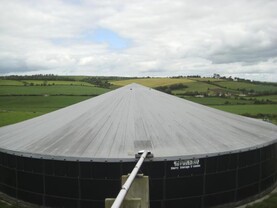The lack of physical meetings has ironically allowed people to take a much more involved participation in farming policy discussions than usual. Over the last week, I virtually attended both my own county IFA meeting and the south Leinster regional meeting.
The south Leinster meeting gave us an opportunity to hear the new IFA director of policy and chief economist Tadhg Buckley give a summary of Tom Arnold’s new policy paper, while their man in Brussels, Liam MacHale, gave an update on the progress in the CAP reform talks forecasting their conclusion in time for the new regime to start next January.
The participants who spoke were well aware that this marked a serious reduction in the compensation-based payments
The two key CAP reform issues were the unfairness of the convergence proposal and the equivalent of confiscation of the approximately 25% Greening element of the basic farm payment with its redistribution, on a flat rate basis, with no indication on what will need to be done to qualify for this payment in the future.
The participants who spoke were well aware that this marked a serious reduction in the compensation-based payments that had been introduced in recognition of the reduction in guaranteed prices.
They were also understandably concerned that like the new REPS replacement scheme, a large proportion of the money would end up in planners’ fees rather than in farmers’ pockets.
The other point that caused enormous frustration at all levels was the chaos in the forestry sector
While the convergence proposals were seen as transferring money at a scale that would significantly jeopardise the viability of those losing money, it would make little difference to those receiving what would be, in the vast bulk of cases, a small amount.
I notice the minister in his recent comments has shown an acute awareness of both the convergence and the environmental deduction payment.
The other point that caused enormous frustration at all levels was the chaos in the forestry sector, with complaints of inordinate delays, not just in relation to the issuing of licences to fell, but even in the length of time taken to carry out an environmental assessment of the suitability of a site for planting.
While the Department has moved to increase staff to speed up the licensing issue, it is clear that following the Glanbia issue, as well as the forestry debacle, a new appeals legislative process is needed. The IFA, it seems to me, has a clear mandate from their members to submit detailed proposals to Government.






 This is a subscriber-only article
This is a subscriber-only article









SHARING OPTIONS: